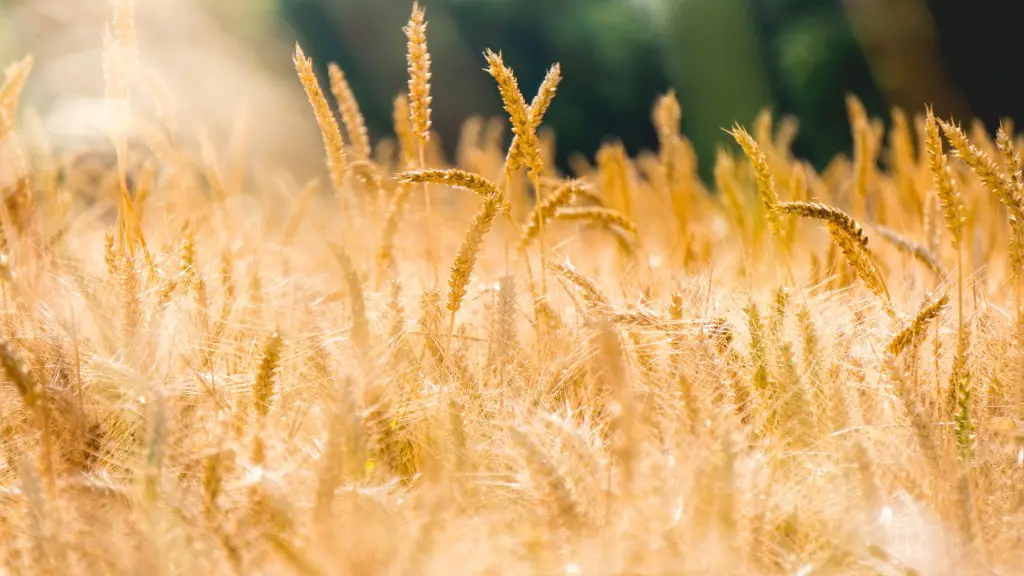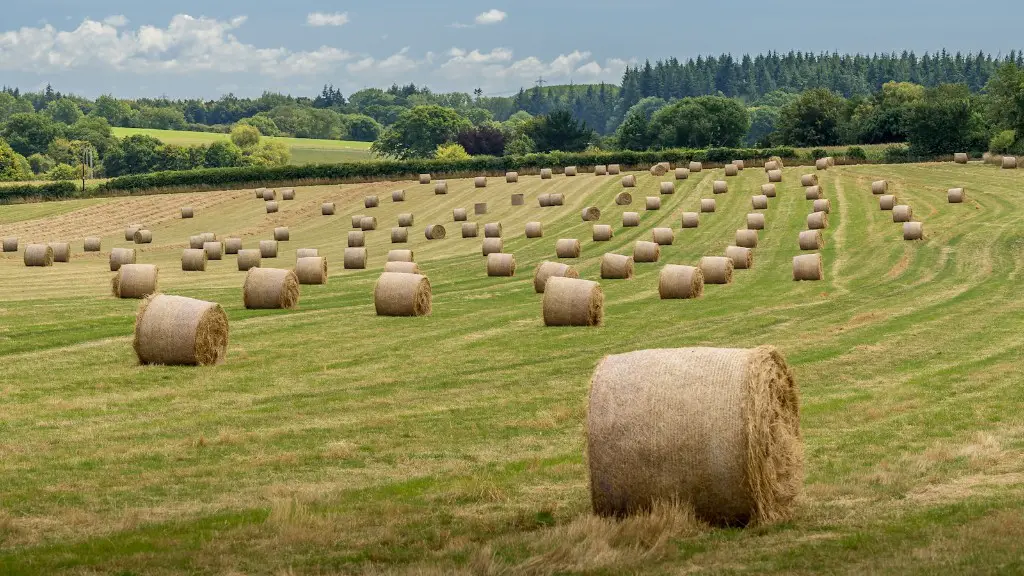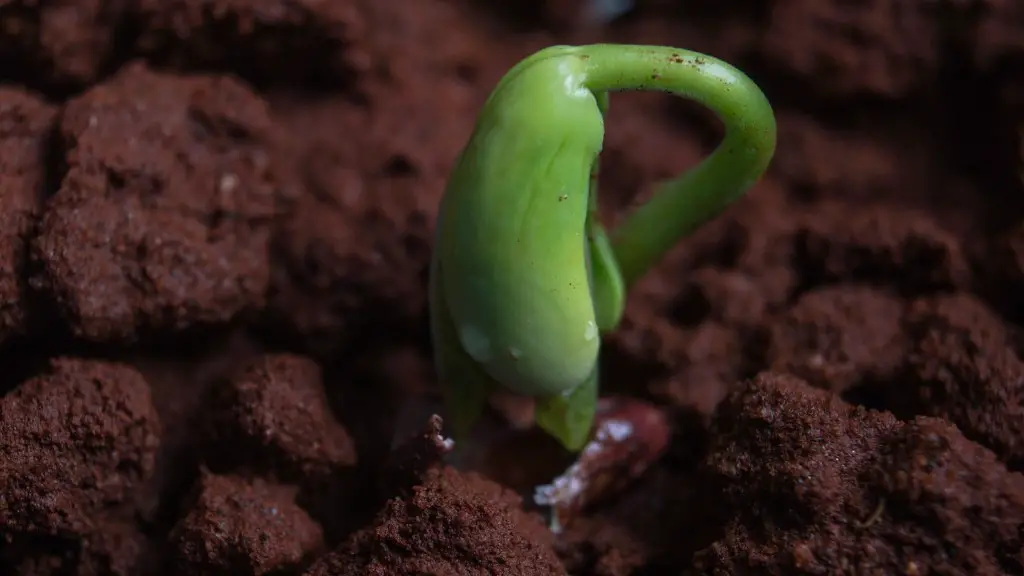Sustainable Agriculture is a type of agricultural system that is designed to minimize resource inputs, including energy, water and chemicals, while at the same time improving overall farm productivity. Sustainable agricultural systems are becoming increasingly necessary in light of the threats facing our planet, including climate change, pollinator declines, and soil degradation. Therefore, it is important to understand the various types of sustainable agriculture and the methods and practices used to ensure its success.
Organic Farming
Organic farming is a type of sustainable agriculture that does not rely on the use of synthetic inputs like chemical fertilizers, pesticides and fungicides. Organic farming systems use natural inputs such as compost and mulches to add essential nutrients and organic matter to soil; they also use crop rotations and crop diversity to maintain healthy soils and help prevent pest and disease. Organic farmers may also employ alternative highly efficient pest and weed control methods such as beneficial insects, cover crops and trap crops.
Integrated Pest Management
Integrated Pest Management (IPM) is a type of sustainable agriculture that incorporates the use of multiple strategies to control pests. IPM involves scouting for pest problems; monitoring populations and damage levels; assessing the risk of further damage; and determining the most effective control method. It is important to note that IPM strategies must take into account both environmental and economic concerns, and that chemical strategies should be used only as a last resort.
Agroforestry
Agroforestry is a type of sustainable agriculture that combines trees and shrubs with crops or animals. Agroforestry can provide multiple benefits, including maintaining biodiversity, reducing pests and diseases, improving soil fertility, and providing food, timber, and other products. Some of the more common types of agroforestry are alley cropping, forest gardens, and silvopasture.
Conservation Agriculture
Conservation agriculture is a type of sustainable agriculture that focuses on minimizing soil disturbance, maintaining a permanent soil cover, and diversifying crop rotations. The goal of conservation agriculture is to reduce erosion, conserve water, and increase soil organic matter. Conservation agriculture practices include minimum tillage, cover crops, and crop rotations.
Permaculture
Permaculture is a type of sustainable agriculture that focuses on designing sustainable human habitats and regenerative farming systems. Permaculture is based on the principles of ecological design, and emphasizes the need to work with nature rather than against it. Permaculture systems incorporate permaculture design principles, edible landscaping, and agroforestry techniques.
Biodynamic Farming
Biodynamic farming is a type of sustainable agriculture that employs principles of ecological balance, composting, and soil fertility. Biodynamic farming incorporates the use of biodynamic preparations, crop rotations, and other special management practices. Biodynamic farming systems also aim to create greater self-sufficiency by utilizing on-farm resources, such as animal manures, and reducing the need for external inputs.
Agroecology
Agroecology is a type of sustainable agriculture that uses an ecological approach to managing farming systems. Agroecology focuses on understanding and managing the interactions between plants, animals, microorganisms, and their environment. Agroecological management practices include the use of cover crops, crop rotations, and integrated pest management.
Incorporating Sustainable Practices
In order to be successful in sustainable agriculture, it is important to consider the environmental, ecological, and economic implications of each method and practice. Additionally, sustainable agricultural practices must be tailored to the specific needs of the farm and the local ecology, and they must be implemented in a holistic way. When incorporated correctly, sustainable agricultural practices can help to reduce resource inputs, increase productivity, and reduce environmental impacts.
Evaluating Sustainable Practices
In order to evaluate the efficacy of sustainable agricultural practices, it is important to consider both economic and ecological factors. On an economic level, it is important to consider the cost of inputs and the yield of the crops. Ecologically, it is important to consider the impacts on biodiversity and soil health. Additionally, it is important to examine how sustainable agricultural practices interact and how they might be improved upon to produce better economic and ecological outcomes.
Managing Sustainable Systems
In order to successfully manage sustainable agricultural systems, it is important to monitor soil condition, water usage, insect populations, and nutrient cycling. Additionally, it is important to conduct research on the effects of different management practices on the ecology and economics of the system. Finally, it is important to evaluate the success of the system and make adjustments as necessary.
Synthesizing Sustainable Practices
In order to synthesize sustainable agricultural practices and maximize their benefits, it is often necessary to combine multiple techniques. For example, agroecology and permaculture can be combined to create an integrated system that utilizes multiple natural inputs and provides multiple outputs, such as food, fuel, and habitat. Additionally, it is important to consider how different management practices might interact and how they can be implemented in a holistic system.
Innovating Sustainable Practices
In order to innovate, it is important to stay up-to-date with new technologies, techniques, and research results. Additionally, it is important to develop a deep understanding of the ecology of the farm and the local environment. Finally, it is important to consider how different systems, techniques, and strategies might be combined to create a more effective, efficient, and sustainable system.



